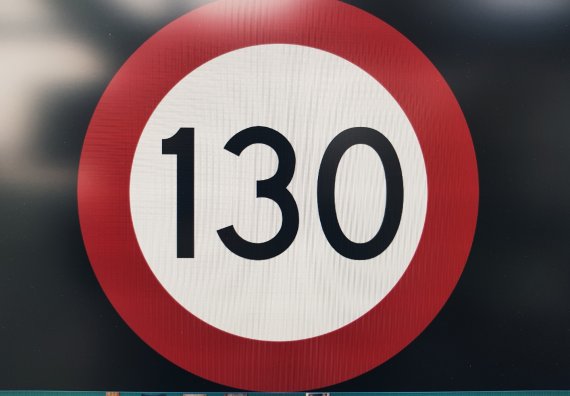In an effort to tackle the nitrogen crisis, maximum speeds on Dutch motorways will be reduced to 100 kilometres per hour. Motorists will only be allowed to drive 130 km/h at night. Not a smart move, says Bert Heusinkveld of the Meteorology and Air Quality chair group.
Why isn’t that a smart move?
‘During the day, the atmosphere heats up from underneath. That hot air rises and forms the atmospheric boundary layer, the thin layer of air in which we live and breathe. That is also where all the pollution ends up. At night, the air cools down, contracts and forms a thin, stable layer of air with barely any mixing because there is less wind. A boundary layer that is one kilometre thick during the day may contract to as little as 100 metres at night. So pollutants from road traffic form a higher concentration in that stable boundary layer.’
Pollution is more concentrated at night and sound travels further
So should the speed limits switch to 130 during the day and 100 at night?
‘I wouldn’t go that far. But from an air pollution perspective, driving 130 km/h is not as bad during the day as at night. On the other hand, there are a lot more cars on the road in the daytime, of course.’
So no 130 km/h at all?
‘No. A speed limit of 130 leads to agitated driving behaviour and the speed differences between vehicles increase the risk of congestion. The big environmental benefit from a limit of 100 comes from calmer driving patterns and less congestion. A car in a traffic jam emits more pollutants per kilometre than one that can keep moving.’
Are there other meteorological reasons for not driving fast at night?
‘Yes, sound travels further at night. As the boundary layer cools down, this leads to big temperature differences in that layer. The temperature at the top can be 10 to 15 degrees warmer than at the bottom. The speed of sound is faster in the warmer parts. That means sound is more likely to pass over noise barriers. It can even mean that such a barrier has no effect at all. That’s why Germany has a speed limit round cities of 80 km/h at night.’

